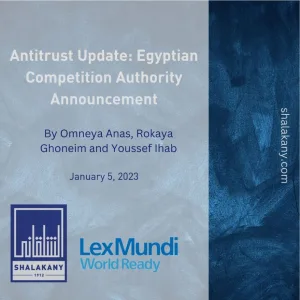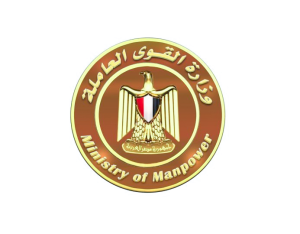As part of Egypt’s tax system reform, the Official Gazette published on November 27th, 2019 two recent decrees of the Minister of Finance Nos. 780 (the “First Decree”) and 779 (the “Second Decree”) (together the “Decrees”) of 2019 – to enter into force as of November 28th, 2019 – amending the Executive Regulations No. 66 of the year 2017 (the “VAT ER”) of the Value Added Tax Law No. 67 of the year 2016 (the “VAT Law” or “Law”).
The Decrees aim to make a balance in the VAT reporting system in favor of the public treasury, as well as granting certain facilities to the taxpayers.
We will briefly delve into the highlights of the Decrees below.
The First Decree facilitating VAT refund through letters of guarantee (“LGs”)
According to the VAT Law, the VAT may be refunded within 45 days from the date of the submission of a request with the supporting evidence in certain events prescribed under the VAT Law. The most significant case of refund is the entitlement to claim VAT refund on exported goods, as this directly impacts domestic production and economic growth. Facilitating such refund would swiftly replenish local producers’ liquidity allowing for expansion and increased production, ultimately boosting Egypt’s trade balance.
The First Decree allows the taxpayer to obtain a partial tax refund while the Egyptian Tax Authority (“ETA”) completes its inspection of the relevant supporting documents, via an irrevocable and unconditional LG with a minimum value of 65% of the claimed refund. The Decree sets out certain conditions for this incentive, including: (i) the submission of documents supporting the paid tax, (ii) the submission of an attestation by a certified accountant of the taxpayer’s entitlement for a VAT refund; and (iii) the obligation of the entity to have regular book-keeping and to not have be convicted of tax evasion by a final court decision.
If the aforementioned conditions are met, the ETA must refund 65% of the claimed amount within 15 days of receiving the refund application. The First Decree also introduces a deadline of 9 months from the date of the submission of a refund application for the ETA to complete its inspection, thereby significantly expediting this process. The ETA would be entitled to request a renewal of the LG or to liquidate the same in case of delays in completing the application by the taxpayer.
Once the ETA issues its final decision on the remainder of the refund, it must return the LG to the taxpayer within 15 days if the decision is in favor of the taxpayer. Nevertheless, if the taxpayer fails to provide the ETA with the supporting evidence for a refund or is not entitled to a refund, the ETA shall liquidate the LG in full or in part, as the case may be.
The Second Decree introducing minimal VAT reporting requirements
By virtue of the VAT Law, taxpayers must submit to the ETA a monthly statement of the due VAT within the two months following the end of the tax period. Such declaration is mandatory even if the taxpayer has not made any taxable sales or performed any taxable services within the tax period.
Under the VAT ER, taxpayers must submit the declaration in electronic format through the ETA e-portal and the payment of the due tax must be done simultaneously with the report.
The Second Decree introduced a minimal (however fundamental) new requirement, that the number of submitted declarations must be at least four within one year. This is a regulation for public interest aiming to maintain a proper reporting VAT system.
Market Reaction
The Decrees have received positive feedback from stakeholders in the market and in the Egyptian tax society. Mr. Yasser Maharim, the Secretary-General of the Egyptian Tax Association, explained in a statement that the Minister of Finance had, through the Decrees, responded quickly and positively to the calls of the tax community.



